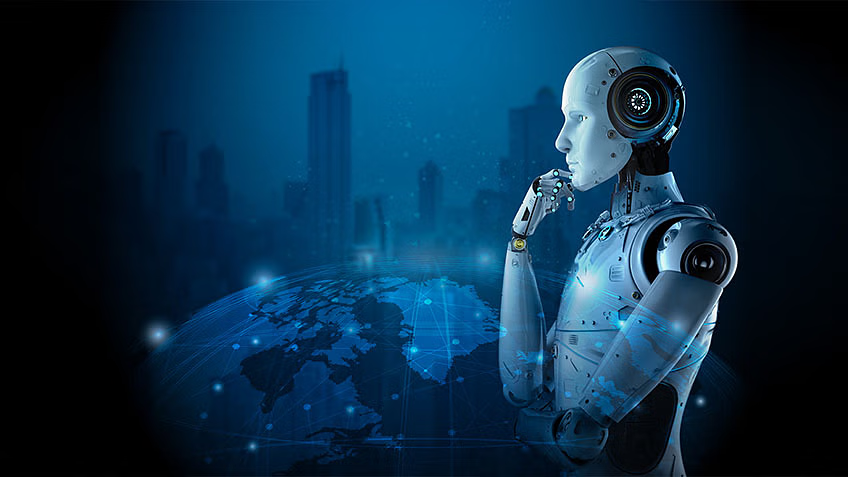I’ve had a year blessedly full of work, but that volume has caused me to let my own blog mostly lie fallow. To make up for this, I’m going to try for a post a day in December. About just about everything. Funny. Serious. Anything goes. Here is Day 8.
The “Uncanny Valley” is a phenomenon in computer graphics describing the state in which something is not quite realistic enough to be mistaken for real life, but too realistic to be just a drawing. It’s why cyborgs and androids frighten us. They’re not cute robots like Rosie from the Jetsons… but they’re not completely interchangeable with people. They’re in between. The similarity holds at a glance, but not upon scrutiny.
I’ve never seen this discussed, but I think it’s important: That same unnerving discomfort can be caused by any technology. It isn’t limited to visual arts. Think about it:
- The first time your map application tells to leave early for a meeting for which you didn’t record the location.
- When your social network suggests that you add an old liaison who isn’t connected to any of your other friends.
- When that item you considered buying, but didn’t search for, shows up in your ads.
Even when you can logically understand how the technology is working, there’s always a first moment of startled awareness, when it does indeed feel uncanny.
Some proponents argue that “we shouldn’t have a Frankensteinian fear of incorporating technology into the body” – or anywhere else. But the adjective itself gives it away. “Frankensteinian” is not a positive thing.
Nor should it be. Mary Shelley didn’t come up with her Modern Prometheus because she was a proponent of medical technology. She was a teenager trying to come up with a scary story.
(The full story is one for another time – but man, Mary, Percy, George and Claire would put any reality-TV drama to shame. In any case, 201 years ago, this little love quadrangle went on holiday to Switzerland. But that year, the world was summerless. [Due to a volcanic eruption in Indonesia. I’m telling you, the story is marvelous. Look these people up.] Stuck inside during a chilly rain, George proposed a spooky story contest. Mary took the longest to get started, but scared herself silly one moonlit night – and Frankenstein and his monster were born.)
Technology can be scary, is my point.
But humans are nothing if not adjustable. We surprise ourselves by how rapidly we acclimate to novelties.
And, helpfully, tech design is deliberately un-Gothic. Our phones look friendly and attractive, like they’re just here to help. And indeed they are.
More than 50 years ago, communication god Marshall McLuhan – the patron saint of my graduate program – described all technology as extensions of the human body. (This is a great digestable overview of McLuhan and this concept.) Technology is humans trying to do something we’re not biologically capable of. Seeing further, moving faster, knowing more.
But McLuhan also pointed out that advances in technology freak us out. In 1968, he said, “Every new technology necessitates a new war.”
Do I think iPhones will cause World War III? No. Do I think my FitBit is terrifying? No.
But do I think that social media has changed the sociopolitical makeup of the world? Unquestionably, enormously, irreversibly – and it’s just beginning.
Communication technology has changed enormously in only my memory. Right now, I’m sitting at my desk with a monitor, a laptop, an iPhone and a Fitbit all touching me or within arm’s length. If you had tried to explain that to seven-year-old me – whose only experience with comparable technology was a television with half a dozen channels, a transistor radio, and a rotary phone – it would indeed have been indistinguishable from magic.
So yes, possibly, new technology necessitates new wars. Our world is far more global than it was a generation ago, a result of digital technology. It’s done marvelous things and will do many more. But it’s bred insularity, populism, prejudice and demagogues, and that will probably get worse before it gets better.
That’s the balance. When we feel that new technology gives us more control, we’re won over. We like that we can use our phone to watch a cartoon employee make our pizza and drive it over. But when we feel that new technology takes control from us, we’re frightened – and fear drives us to make terrible decisions.
This was supposed to be a short musing on how proponents of tech need to walk a thin line to keep their tools friendly, calming, non-intimidating, in order to gain market acceptance.
Instead, I got oddly sociopolitical.
Perhaps that’s the whole point.
Does the uncanny valley lead to war? Maybe. Maybe not. But we can’t talk about UX and smart devices and fun tech and leave the conversation there, not without talking about the broader implications of it all. We are connecting ourselves to each other and we’re connecting ourselves to databases. At what cost, and to what benefit? They’re ongoing questions… but they’re questions we must keep asking.

